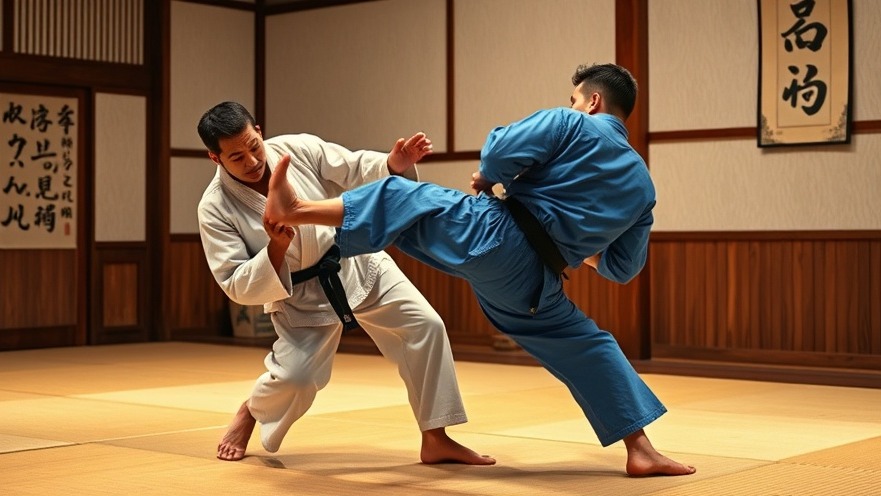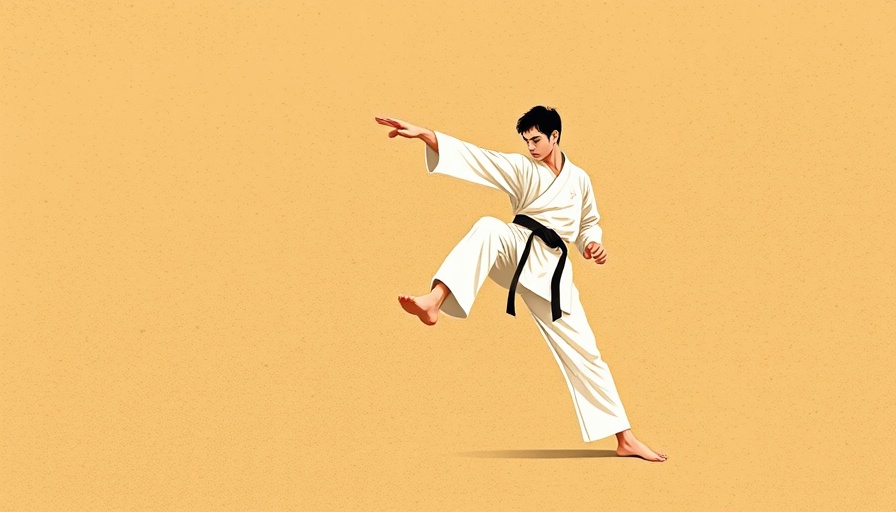
Staying Sharp: Martial Arts Training on the Go
For martial artists, the journey of honing skills doesn't come to a halt when traveling. Whether you're visiting family, going on vacation, or attending a seminar, maintaining your training regime is not only crucial for skill retention but also keeps your mindset focused. As black belts and dedicated students often share, it is the consistency of effort—even in small measures—that fosters progress. Let's explore how to train effectively, even in the middle of travel.
Making Every Moment Count While Traveling
While you may not have access to your dojo or training partners, the world around you offers unique opportunities for practice. Parks, hotel rooms, or even parking lots can be transformed into training environments. The goal is not intensity but rather to make every moment count. Engaging in focused training sessions, however brief, helps in maintaining proficiency in your techniques.
Creative Training Techniques for Striking Arts
If you practice striking arts, such as Muay Thai, karate, or taekwondo, don’t overlook the potential of shadowboxing. Shadowboxing allows you to maintain speed and precision without requiring any equipment. Practicing wall drills for kicking is another excellent way to keep your form crisp. As you refine these techniques, consider using available surfaces to support your balancing and control drills.
Innovative Drills for Grappling Arts
For grappling enthusiasts, such as practitioners of Krav Maga, traveling doesn't have to mean sacrificing your skill development. Solo movement drills can be performed in any modest space. Exercises like shrimping or bridging not only maintain your agility but can also enhance your muscle memory. Additionally, visualize your techniques, walking through escapes and transitions mentally to reinforce your understanding of these crucial skills.
Training with Weapons: Adapting Your Skills
If your passion is in weapons-based arts like nunchaku or bo, you can keep your footwork and hand coordination sharp. Utilize everyday objects found around you, such as pens or belts, to emulate your weapons, enabling you to practice flow drills. This innovative approach not only refines your skills but also adds an element of creativity to your training.
The Importance of Mental Rehearsal
Training isn't just about physical practice—mental rehearsal plays a significant role. By mentally running through your combat scenarios and techniques, you not only enhance your muscle memory but also develop your tactical thinking. This practice can be just as valuable as physical drills, reinforcing your knowledge and decision-making skills in high-pressure situations.
Making Connections: How Martial Arts Unites Us
The essence of martial arts lies in its ability to connect people. Sharing your travel training experiences can foster relationships with fellow martial artists across different cultures. Whether it's exchanging training tips or joining local classes while away from home, these newfound connections enhance our understanding and appreciation of martial arts globally.
Actionable Tips for Consistent Training
1. **Establish a Routine**: Set aside time daily for your practice, however brief. Consistency is key.
2. **Use Available Resources**: Look for nearby parks or gyms that permit practice. Modify drills to suit your environment.
3. **Engage with Local Martial Artists**: If circumstances allow, consider joining a local dojo for a class while you’re in the area. It’s a great way to stay engaged and meet new people.
In conclusion, traveling should not derail your martial arts journey. With creativity, adaptability, and a commitment to maintaining your routine, you can stay sharp wherever life takes you. Want to cultivate these skills further? Consider checking out GMAU’s martial arts courses, perfect for anyone looking to train from home or while on the road. Start your journey today!
 Add Row
Add Row  Add
Add 








Write A Comment